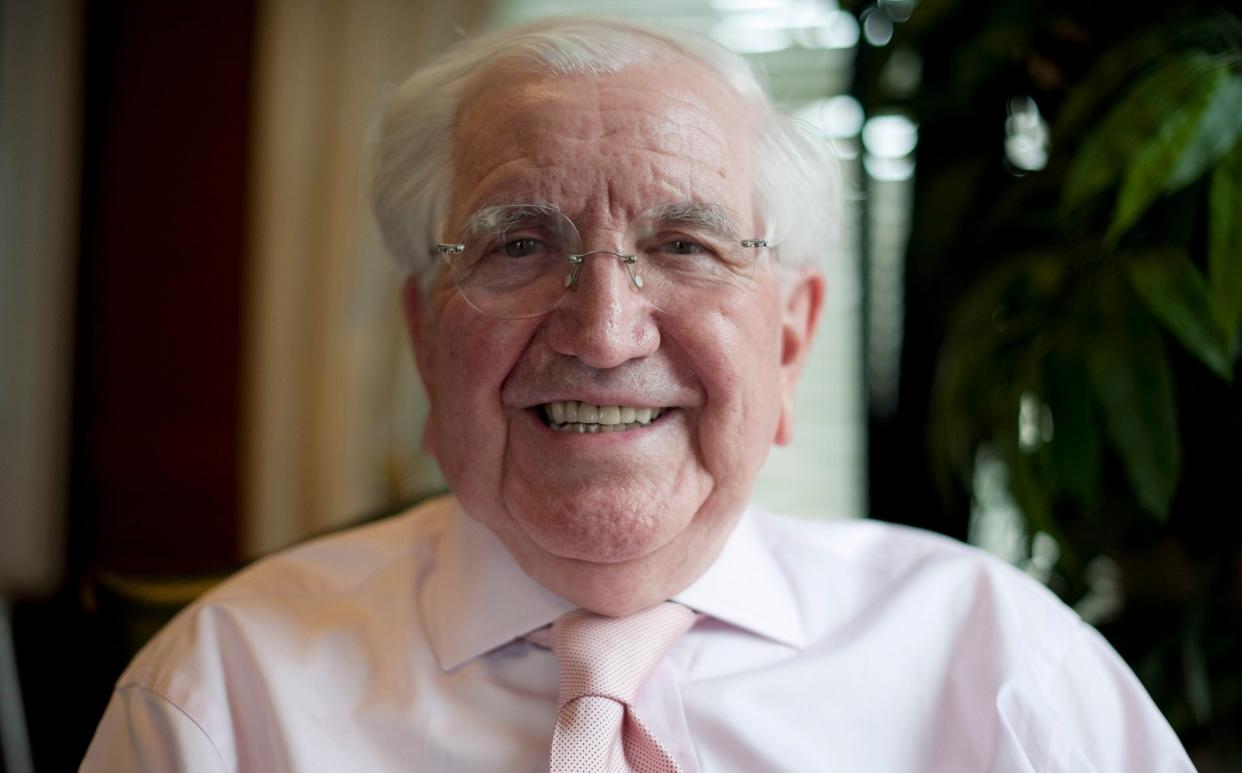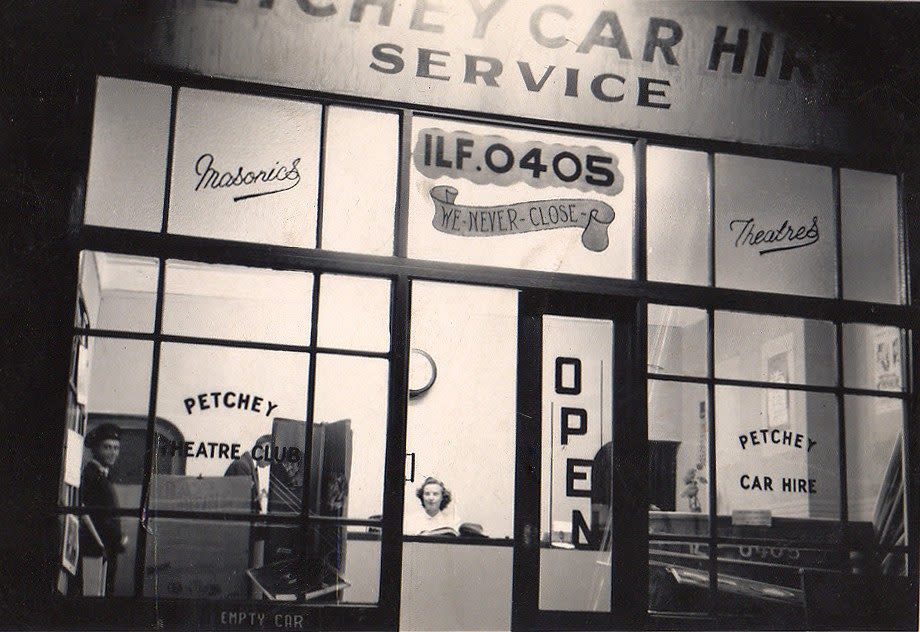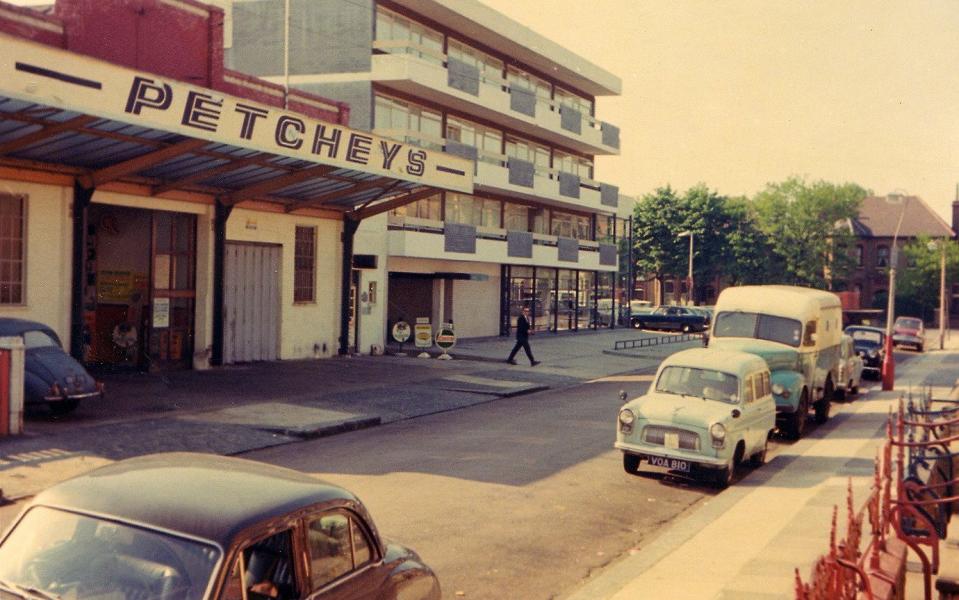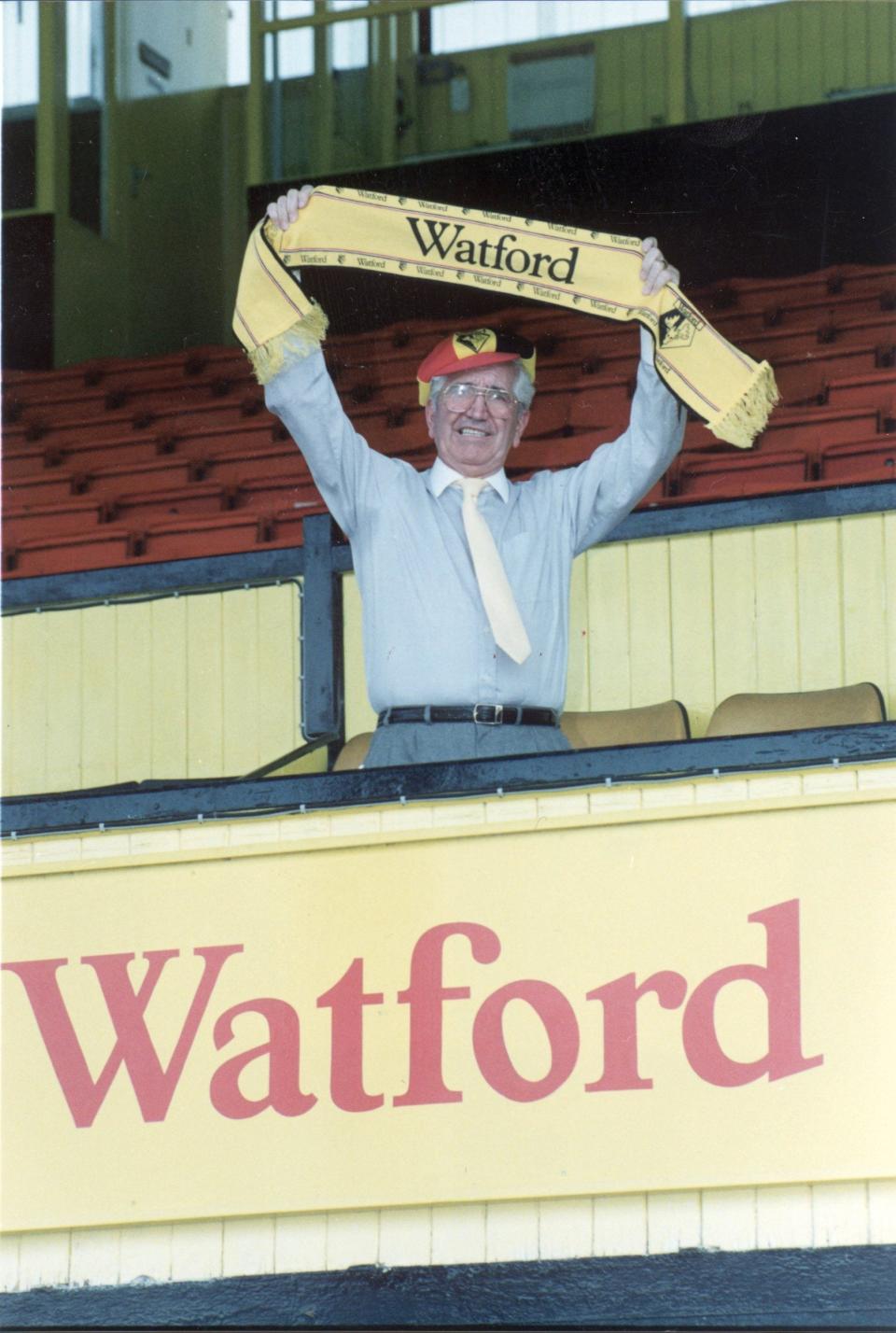Sir Jack Petchey, businessman who made his fortune in property and created a youth foundation – obituary

Sir Jack Petchey, who has died aged 98, was a property tycoon, timeshare pioneer, football club owner and philanthropist who gave a large part of his fortune to causes for young people.
The Jack Petchey Foundation, created in 1999 with profits from his business empire, has channelled more than £170 million into projects and achievement awards for 11- to 25-year-olds in London and Essex. The many entities that benefited ranged from the Royal Academy of Dance and Table Tennis England to Sea Cadet and Scout groups, as well as schemes to promote youth entrepreneurship and employability.
Each year, thousands of youngsters win £250 Jack Petchey Achievement Awards for their schools and organisations. Petchey’s aim and mission was to give the next generation the kind of opportunities that were lacking in his own humble East End upbringing and inspire them to achieve their full potential. His motto was “If you think you can, you can.”
Jack Petchey was born in Plaistow, east London, on July 19 1925 to Stanley Petchey – originally a turner, later a painter and decorator – and Dorothy, née Cubbon. The family home was a one-room flat at Manor Park with an outside toilet and a tin bath hung on the fence outside.

To his later regret, Jack took “no interest at all” in his education at Monega Road School in East Ham and left at 13 to work as an office boy. He was a police and auxiliary fire service messenger before volunteering for the Royal Navy when he turned 17; transferred to the Fleet Air Arm, he became an aircraft fitter and engineer, servicing planes that provided cover for the 1944 Normandy landings.
Having returned to office life after the war but been told he was not “management material”, he deployed his £60 discharge pay to buy a car and start a taxi business. Among his passengers were returning servicemen landing in the London docks – and the Kray brothers and their ilk: “It was hairy,” he recalled, “but I just kept my head down.”
Having bought “one car, then two, then three”, he built up a fleet with uniformed drivers. “Then I realised that selling cars was more profitable, so I bought a car showroom.”
He also bought his mother’s house from her landlord for £800, sold it for £1,200 and moved the family to better accommodation – the beginning of a long ascent in residential and industrial property, always with an eye for undervalued assets, that would survive a brush with bankruptcy in the 1974 crash and eventually bring him a fortune estimated at £550 million.

In the early 1970s he saw an opportunity to venture into leisure and timeshare development with the Clube Praia da Oura at Albufeira in Portugal – surviving an episode during the 1974 military coup when he was arrested at the point of a machine gun, accused of breaching foreign exchange regulations. Other timeshare projects followed in Spain, Tenerife and the UK until the portfolio was sold to Indian investors in 2012.
He also built a reputation as a shrewd dealer in smaller-company shares, with a penchant for acquiring stakes in housebuilders and hotel businesses that occasionally brought him to the attention of City regulators.
In the world of football, his reputation was mixed. Having previously been a director of West Ham United, in 1990 he bought a 93 per cent interest in Second Division Watford from Elton John for a reported £3.5 million and embarked on much-needed improvements to the club’s Vicarage Road ground.
But according to one club historian, “he did little to endear himself to its diehard core support” by pursuing a policy of “selling the family jewels” – players such as Paul Furlong, sold to Chelsea, and Bruce Dyer to Crystal Palace – “whenever the price was right”.
He sold Watford back to Elton John in 1997 and later bought a stake in Aston Villa, some pundits suspecting him of having spotted a property-development opportunity there.

But before his late flowering as a philanthropist, he stayed mostly out of the media limelight. “Who is Jack Petchey?” wrote a City diarist in 2002, having discovered little about him except that he drove a midnight-blue Rolls-Royce, registration JP 9000.
Petchey played squash into his mid-eighties and was a daily presence at his Foundation’s office until the Covid-19 pandemic forced him to stay at his Wapping home. He published 50/50 Man: The Jack Petchey Story in 2006.
He was appointed OBE in 2004, raised to CBE in 2011 and knighted in 2016. In that year, by then 90, Petchey married his long-time partner Frances Segelman, a sculptor whose busts of the late Queen Elizabeth and Prince Philip are in Buckingham Palace.
“He wants to make me a Lady,” Frances told a newspaper. “We’ve only been courting 24 years but I thought he’d never ask.” “It only seemed right not to delay the decision any further,” Sir Jack agreed.
He is survived by Frances and by three daughters of his first marriage, in 1949, to Diana Harrison; a son of that marriage predeceased him.
Sir Jack Petchey, born July 19 1925, died June 27 2024

 Yahoo News
Yahoo News 
